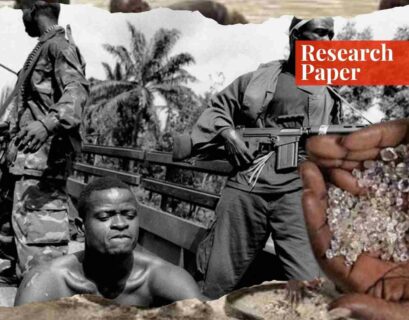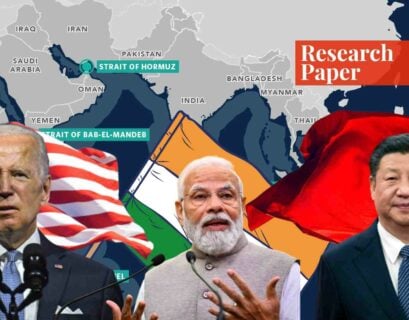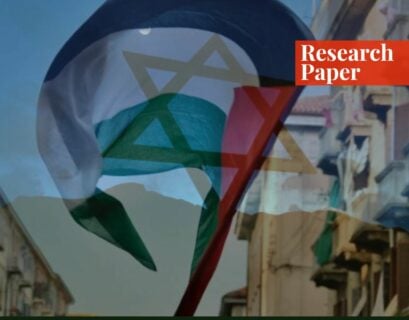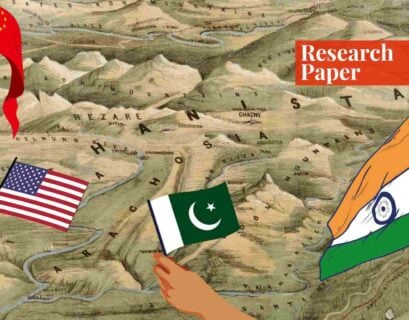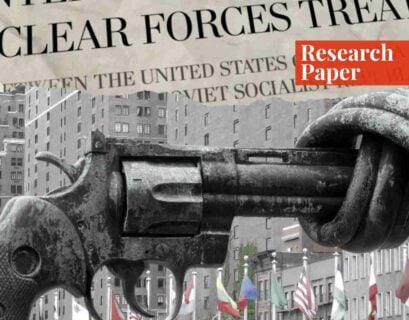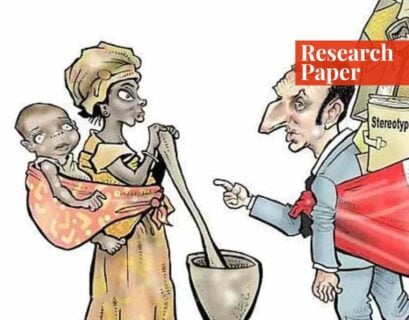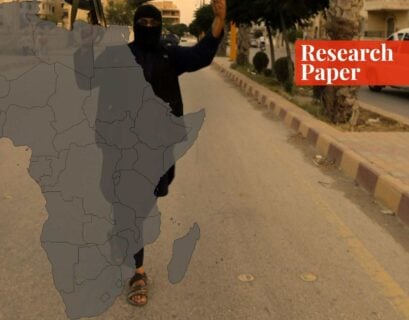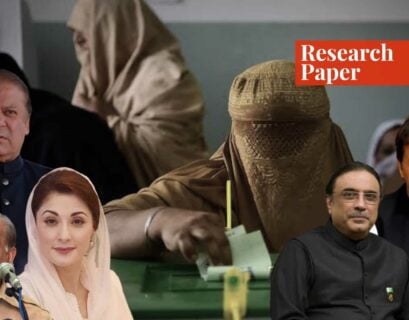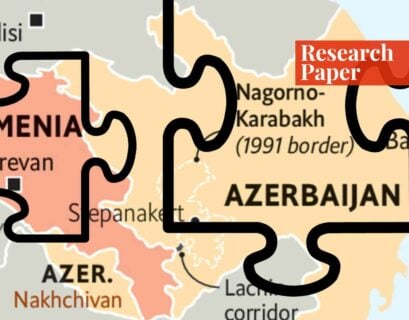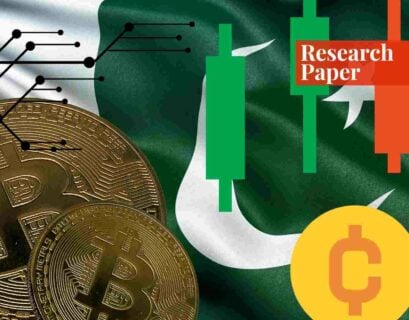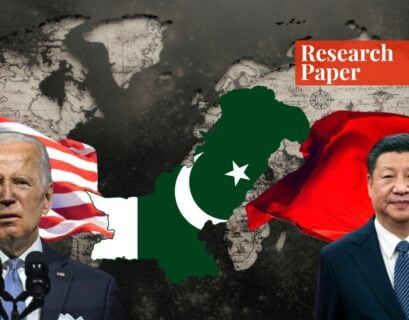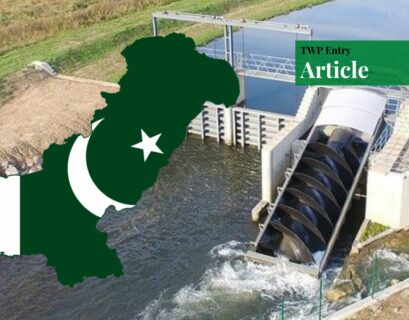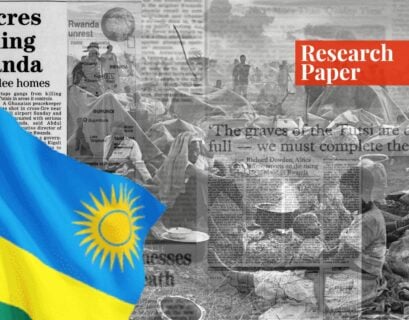What Caused the Sierra Leone Civil War (1991–2002): Greed or Grievances?
When it comes to civil wars, the causes are often categorized into two types: those driven by greed and those driven by grievances.
Rabbia Saeed applies this debate to the 1991-2002 civil war in Sierra Leone, a country infamous for its blood diamonds.
She deliberates on the roles of the two main perpetrators of war and contemplates which factor outweighs the other in the case of Sierra Leone.
Major Powers’ Interests in IOR And Implications For the Region
The Indian Ocean Region (IOR) is a critical area of focus for global powers due to its economic significance, strategic chokepoints, and natural resources.
The US, China, and India are vying for dominance in the region, with new alliances and military bases being established to safeguard their interests. China and India are expected to be major engines of growth.
The complex interdependence and potential threats in the IOR necessitate constructive dialogue and a balanced approach to regional security.
Palestine: Nemesis of Islamic Character
The conflict between Israel and Palestine is complex and has historical, military, and political dimensions. It is rooted in the illegal occupation of Palestinian land. The crisis has been analyzed extensively, but the suffering continues.
Lt Gen (R) Tariq Khan states that it is crucial to take a stand, especially when innocent lives are at stake. The conflict is not about generalizations but specific incidents of legal, moral, communal, and societal violations.
The historical backdrop of the conflict goes back over a century, with the concept of Zionism playing a significant role.
The New Great Game: A Pakistani Perspective
Lt Gen Tariq Khan provides an in-depth account of the historical rivalry known as the “Great Game” that took place between the British and Russian empires in the subcontinent during the 19th century.
In his paper, he explains that the withdrawal of the US from Afghanistan created a power vacuum, which set the stage for a “New Great Game” in the South Asian region.
This region is of immense importance due to its geo-strategic location which is central to China, Central Asian republics, Iran, and Pakistan.
Transforming the Economic Condition of Pakistan: Challenges & Solutions
Lt Gen (R) Tariq Khan examines the dire economic condition of Pakistan. He asserts that the state of Pakistan’s economy is the result of none other than its own policies and its disregard for the well-being of its citizens. In light of this self-inflicted damage, he advocates for a new economic initiative to steer Pakistan towards recovery.
Challenges and Prospects of Verification and Monitoring in Arms Control Agreements: A Case Study of the INF Treaty
This paper examines how the challenges posed by technological developments, political complexities, and compliance issues impact the monitoring and verification of arms control agreements.
It focuses on the Intermediate-Range Nuclear Forces (INF) treaty, and the prospects that exist for promoting security and disarmament in the face of these challenges.
How Contemporary International Public Policy is Shaped by the Legacies of Colonialism
The aftermath of colonialism is evident in the contemporary political landscape which shapes international public policy and helps in understanding conflicts in the world.
In this research paper, Tahoora Kamran uncovers the legacies of colonialism through three cases—the French colonial pact; Belgian rule in Rwanda; and neocolonial governance through the IMF and the World Bank—all of which ultimately indicate the traces of colonialism and showcase the importance of using a postcolonial lens.
The Islamic State’s Ingress in Africa: Implications for Regional and Global Security
There has been increasing evidence and concern regarding the presence of ISIS in Africa. While major powers and local authorities are actively countering the threat posed by the group in Africa, it is crucial to address the socio-political and economic deprivations that fuel the rebellion against the state. The group’s ambitions extend globally, as evident in an ambitious world map released by its leader, Baghdadi. Their strategy involves establishing their rule in different countries, employing local commanders known as “Amirs,” who are accountable to the self-proclaimed and widely regarded as illegitimate “Caliph.”
Real Estate Prediction via Machine Learning: A Case Study of Pakistan’s Cities
The traditional methods for forecasting the price of a house as well as flats fail to capture the high complexity of price variance from house to house.
The purpose of this paper is to provide valuable insights into the real estate market such as potential market gaps and price estimation.
Additionally, the paper aims to facilitate a comprehensive comparison among different algorithms that can be used for house price prediction.
The Role of Electables in Pakistani Politics
This qualitative and primary research examines the nature and role of electables in Pakistan’s political system. It tries to investigate whether politicians and electables adhere to any political ideology or not. Electables have won most elections but have been unable to bring out any change in Pakistan.
The paper concludes on the basis of the descriptive analysis of the interviews of the politicians. The argument establishes that these politicians are ideologically agnostic who just want to achieve their political objectives. As a result, it appears that our mainstream political parties are under pressure to recruit as many electables as possible.
Conflict Management in Nagorno-Karabakh
The Nagorno-Karabakh war ended in 2020, but politically, there are still conflicts and problems related to the territory’s nationality and residence. Using the conflict management concept from Johan Galtung, this research aims to understand the processes and actors in the Nagorno-Karabakh case.
Is there a Future for Cryptocurrency in Pakistan?
Javeria Abbas analyzes the factors that are responsible for the adoption and the rejection of cryptocurrency in Pakistan. She tries to relate each factor responsible for the rejection of cryptocurrency in Pakistan with the Islamic finance system.
This paper also gives an insight into the bitcoin transaction system, how bitcoin is used, and how its usage is classified as unislamic.
Abandoning Retribution: Embracing Restorative Justice through Social Institutions in Pakistan and Beyond
Suleman Yousaf explores the role of society in crime prevention; from peer influence to moral reprimands to the loss of social status, he aims to discover potential alternatives to retributive justice.
He delves into a nuanced understanding of social status in deterring crime, drawing on Howard S. Becker’s labeling theory. Here, the theory is used to examine how the fear of being labeled and losing esteemed social standing can act as a deterrent against criminal behavior.
The study involved surveying 34 participants, and the findings support the proposed hypothesis that the fear of losing social status can indeed deter crime, making crime prevention by social intervention as crucial as investigation, prosecution, and conviction.
The paper also proposes a mechanism for establishing social institutions that operate through the “fluidity of identity,” which involves suspending the social status of potential offenders until they embrace civility and abandon the path of c…
Navigating the Sino-US Rivalry: Pakistan’s Strategic Dilemma
Yashfa Ahsan reflects on Pakistan’s intricate position amid the Sino-US rivalry. The South Asian state’s strategic location demands a multifaceted and balanced approach in its foreign policy and international relations. The author acknowledges the implications of India and the US’s engagement in the Indian Ocean Region for Pakistan’s security and economy. Bearing this in mind, she emphasizes that, with key players like India, Iran, and Afghanistan drawn into this rivalry, Pakistan must establish itself as a reliable economic and strategic partner for the states involved.
Exploring Micro Hydropower Projects as a Viable Solution to Pakistan’s Energy Crisis
Pakistan possesses a hydropower potential of up to 60,000 MW, with about 40% of it coming from Gilgit-Baltistan and the Kashmir region.
Although the natural topography and challenging terrain make it difficult and expensive to bring up grid electrification to most places, particularly in the northern highland parts, Daniyal Bin Tanveer presents Micro Hydro Power (MHP) projects as an interesting policy solution.
The paper shall first discuss why a lack of energy production in Pakistan is a massive issue that needs to be addressed, followed by an analysis of the prevailing dynamics of the MHP market.
What will follow is a look at this paper’s findings, followed by a proposal of potential policy
measures that could be utilized to develop a network of MHPs where possible. Lastly, the economic implications of possibly adopting this policy measure will also be presented, before a brief conclusion ties the entire discussion together.
Food Insecurity: A Potential Traditional Security Threat?
Amna Naveed analyzes the undeniable link between food insecurity and political instability in a state. While considered a non-traditional security threat, food insecurity directly influences the state military’s retention power, financial spending, and the psychological well-being of the soldiers.
By considering the case of Africa’s food crisis, she reveals the impact of capitalism, colonialism, and war on the people of the continent. She emphasizes that if left unchecked, food insecurity can act as one of the factors responsible for protests, insurgencies, civil wars, and revolutions.
